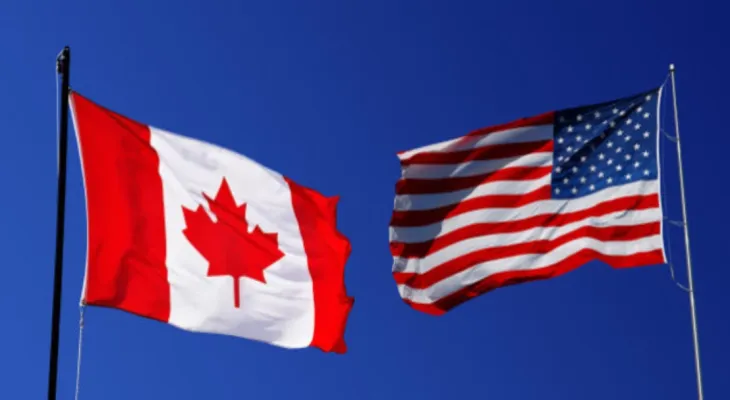Search here
Newspaper
Search here

Arab Canada News
News

Published: October 5, 2022
There is a saying that while the United States sneezes, Canada is about to catch a cold. Or not.
Investors who apply this adage in the current circumstances might want to hedge their bets, according to a recent report by economists at the Canadian Imperial Bank of Commerce.
Avery Shenfeld and Katherine Judge tried to figure out which economy is facing the bigger problem based on past experience. The best they can be sure of is that the road is about to get bumpy for both, as the US Federal Reserve and the Bank of Canada race to contain inflation with higher interest rates, but there are too many variables to determine who is about to endure the tougher ride.
If you have money invested in Canada, this might be good news, given the assumption that American economic pain is always worse north of the border. Shenfeld and Judge wrote in a memo on October 3: "The facts do not line up in one direction, but from this standpoint, they support our general conclusion that there is no strong argument to be made that the high level of Canadian household debt, or their greater weight in cyclical resource industries, means it faces a bigger shock in the future."
There is a lot of talk about recession because central banks worldwide are raising interest rates in response to the biggest inflation fears since the early 1980s. Price increases on an annual basis are about eight percent in the United States, and the Federal Reserve has made it clear that it is willing to risk a price downturn to bring inflation back to its 2 percent target.
Since monetary policy is a blunt tool, many economists on Wall Street assume that a recession is inevitable.
Although it is acknowledged that the United States exports its economic pains north of the border, there is no clear pattern as to which country is most affected during recessions. Canada performed worst during the 1990-1991 and 1981-1982 downturns, but the United States was the biggest loser in 2001, 1980, 1973-1975, and 1969-1970, as noted by Shenfeld and Judge. The biggest loser this time might be the party that feels the most central pressure to bring inflation back to target by causing a "recession," a term economists use to refer to economic slack created when economies operate below their capacities.
Growth forecasts by the Federal Reserve are weaker than those of the Bank of Canada, suggesting that US policymakers believe they will need higher interest rates to control inflation.
This may allow Canada to achieve relatively stronger growth over the next two years. Shenfeld and Judge wrote: "The United States appears to need a bigger economic crisis to contain inflation." Of course, the Bank of Canada was probably overly optimistic when it last updated its forecasts in July. CIBC revised its forecasts in September and now expects GDP to grow by only 0.6 percent this year from 2022. The Bank of Canada, which will revise its forecasts later this month, expects growth of 1.8 percent this year.
So, given everything that happened this summer, it is quite likely that the Bank of Canada will revise its forecasts downward. Shenfeld and Judge wrote: "Add it all up, and there is not much to choose from in terms of who is worse off." "Both the United States and Canada are heading toward at least two years of weak growth, or a shorter outright recession, as monetary tightening targets inflation."
Edited by: Yusra Bamtraf
Comments